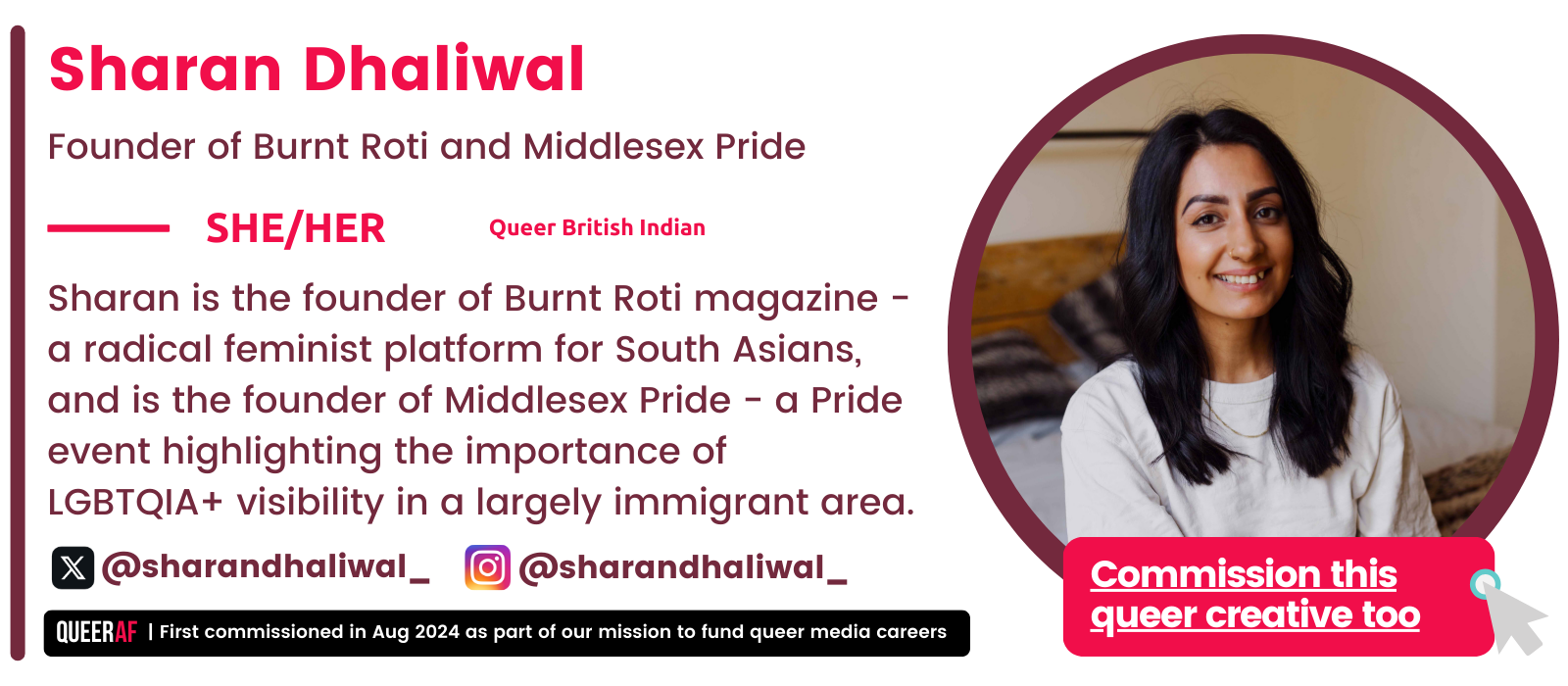
I remember 9/11.
I was let out of school and stood in my living room, still in my uniform, staring at the TV. I watched as the TV news replayed the planes hitting the Twin Towers over and over. For years after, I felt the screams, as they went from fear to anger.
I felt them like a heavy breath on my neck, as I squeezed past them on public transport. Their sneers and growls created a condensation on my skin. Or was that sweat?
I remember the first time I felt anxious about who I was: a queer British Indian woman. The sweat sparkled on my brown skin, and I wiped it away in fear. Every moment of anxiety has since engraved itself in my memory. The racial anxiety was replaced with homophobia and transphobia in the years to come.
When I sit on public transport, I'm not always sure who my skin will offend that day. Or maybe it will be my clothes, my language, my Pride and Palestine pins.
When Parliament was attacked on July 7th 2005, I was there in lockdown as the offices around the bridge closed. Under other circumstances I would have been standing on Westminster Bridge at that moment, recording Big Ben for a social media video.
As I finally left to go home, I felt all eyes on me. For a moment, in my panic, I forgot. I blush, my brown skin burns, and I rush home.
And so whenever the far right gets on a feverish high and feel emblazoned to assault people of colour, as they did last week, I feel heavy.
I receive texts and messages of solidarity, with a lingering "how can we help you?", from loved ones. My partner shrugs in familiarity and becomes quiet.
Because while we watch far-right terrorists destroy our communities and attack people of colour, we have our own government and media to blame. Their anti-Muslim slogans have made Islamphobia and anti-Blackness the right wing’s favourite catchphrase.
It was a few years ago that I really understood how far back this history went.
When immigration peaked and Britain opened its borders in 1948 to address post-war labour shortages, the Windrush generation answered the call - and got nothing but discrimination as thanks. In the years that followed, strikes, protests and fights have filled our history.
From one government to the next, the message has been the same: Churchill’s approval of the “Keep Britain White” slogan; Theresa May’s ‘hostile environment’ immigration policy; Priti Patel’s anti-refugee bill. We have endured decades of hate.
The same government and media figures have fanned the flames of homophobia and transphobia. The same mouths, who claim to condemn violent riots, have grinned while making suggestions about what a woman's anatomy should be.
And so I sit here, having spent an hour gathering my strength to leave the house and returning with that familiar anxious sweat. I wonder what happens tomorrow. Or next week. The week after.
My strength begins to return when I see anti-racist demonstrators flood the streets to reject the far right. They have temporarily pushed the problem away. But it’s still there.
Perpetuated by our government’s tactic to divide the masses with hate for each other, the lens of inequality focuses away from their mansions and back on us.
I want something more. I want people to be held to account. I want the government and mainstream media to be held to account.
But importantly, I don’t want to stop seeing people take to the streets, to declare that we all belong. I want the screams I hear to be loud because of enduring love. Loud declarations of devotion for each other.
It’s in these moments that we mend divisions that have been created. It’s this radical act of love that brings us back together.

Get the Queer Gaze in your inbox each week with our free weekly newsletter or pitch to write an edition for us now.
Fighting for our rights can feel, at times, unobtainable.
That's why we desperately need to improve the media landscape.
We're doing that by helping queer creatives improve the way they communicate about our rights.
We're obsessed with communication. Knowing what's happening isn't enough. Awareness isn't enough. We need action.
That's why we don't just write the news, but we make sure you understand it.
When you know why it's happening, your limbic brain (the bit that processes your emotional responses) gets very excited. It drives action. Purpose. Understanding.
That's what we're teaching our writers about - not just good journalism practices, but how to show people why queer rights actually rock.
Alongside this massive newsletter, it's a big commitment. We're up to the task, but we can't do it without you. If you think what we do is valuable, please consider a membership.










